
Salvador Reza, longtime immigrant rights activist and author, speaks to day laborers outside of a Home Depot in Phoenix, Arizona. (César Barrón/CALÓ News)
One sunny morning in Phoenix, Arizona, in the parking lot of a Home Depot at 36th Street and Thomas Road, dozens of men sit on the outskirts waiting for someone to hire them as laborers. Salvador Reza approaches them. They look at him and begin asking him questions about immigration.
Reza, an immigrant rights activist, community leader and now celebrated author in Arizona, is a man who transformed a childhood wound into a collective insistence on dignity. At 73, he’s committed to informing day laborers about their rights and fighting for an end to the harsh immigration enforcement that President Donald Trump is carrying out against the migrant and Latino community across the U.S.
When he was still elementary school-aged and had just arrived in Texas from his native Mexico, he was beaten by his school principal for speaking Spanish. The episode left a mark on him and became the driving force behind his activism, he told CALÓ News.
But this work didn't begin this year — or even this century. For decades, Reza has walked hand in hand with activists and leaders in California and Arizona in the pursuit of humane treatment for migrants.
Last week, he celebrated the launch of his first book, titled "Macehualli Day Laborers: Spiritual Roots of Our Fight Against Sheriff Arpaio," in which he summarizes decades of that activism and the collective memory of that struggle. In his acknowledgments, Reza mentions the thousands of children, women, and men who defy fear, as well as the individuals — many of them women — and organizations that have been part of the fight.
Macehualli comes from Nahuatl and means "deserving of honor for their work," Reza explains in the book's first chapter. The Macehualli was guided by a collective social culture that honored the worker as the most important link in society, as the backbone of the economy, the author describes.

Salvador Reza, longtime immigrant rights activist and author, poses with two copies of his recently published book, "Macehualli Day Laborers: Spiritual Roots of Our Fight Against Sheriff Arpaio," outside of a Home Depot in Phoenix, Arizona. (César Barrón/CALÓ News)
In the Home Depot parking lot, Reza distributed the La Talacha newspaper, published by the National Day Laborer Network (NDLON), to day laborers who arrived there in the hope of finding work.
One of them immediately recognized Reza and asked him where he had been and whether he had any significant updates for migrant workers.
In the Phoenix community, he is known as one of the main opponents of Arizona's SB 1070 law and for his support of farmworkers and street vendors.
‘You can’t retire when there’s injustice’
Reza was born in Chihuahua, Mexico, and at age nine moved with his family to Ysleta, Texas. In the 1980s, he studied at San Diego State University (SDSU) in California, and since 1993 Arizona has been his home.
When asked how long he has been involved in the fight for migrant rights, he replied that he considers it to have started with that episode of violence at school when he was a child. “Instead of destroying me, they made me angry,” the activist shared.
But his first tangible steps toward activism, he said, were when he joined the bilingual newspaper Voz Fronteriza, a student publication at SDSU, which was distributed in San Diego neighborhoods and restaurants.

A screengrab of a section of an older edition of the student newspaper Voz Fronteriza from San Diego State University. (JSTOR)
From the fight against SB 1070 — known as the “show me your papers” law, which allowed anyone who appeared to be undocumented to be detained by local police — and the days of former Maricopa County Sheriff Joe Arpaio, Pablo Alvarado of NDLON told Reza to write a book recounting his experience.
With some financial support from Alvarado, that writing journey began for Reza. It took him a little over two years to finish it, he said.
He explained to CALÓ News that the book recounts how the Phoenix community defeated Arpaio and SB 1070, but from the perspective of day laborers.
Arizona's SB 1070 law included provisions that required police to check the immigration status of people suspected of being in the country in an unauthorized manner, criminalized migrants for not carrying identification documents and prohibited the hiring of undocumented immigrants. In 2012, two years after the law went into effect, the U.S. Supreme Court struck down key parts of the legislation.
He recalled that then-Sheriff Arpaio's officers arrested six or seven day laborers daily at local Home Depots, taking them to what is now known as "Tent City," a now shut-down open-air detention area covered by tents that in the 1990s functioned primarily as an immigration detention center during Arpaio's tenure.
That's where the fight began, he said, and he doesn't plan to stop.
"Until my body gives out, because I'm already old. You can't retire when there's injustice; you have to fight until your last breath if necessary," he said emphatically.
César Barrón is an independent reporter covering the transnational communities of Ambos Nogales. He has over 20 years of experience covering the Sonoran communities.

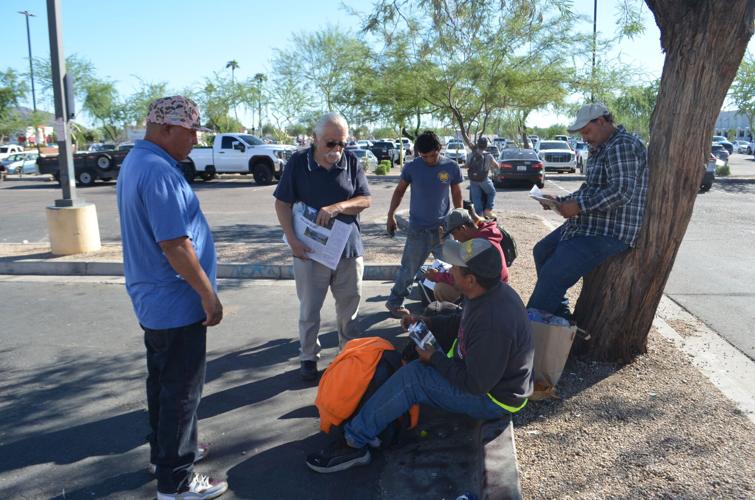
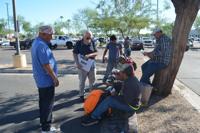
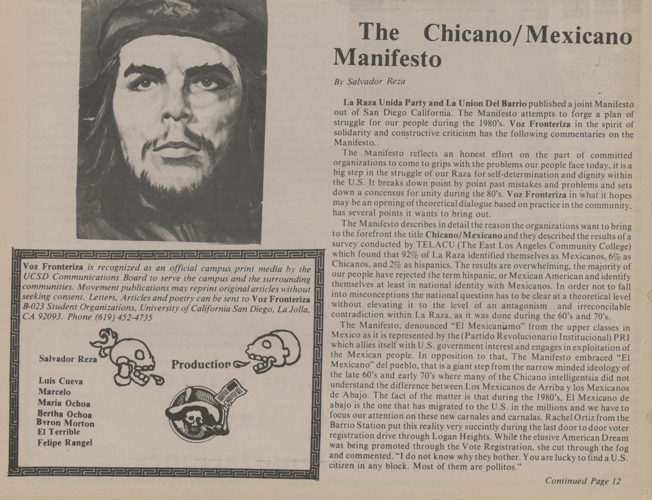
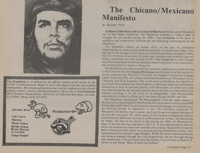
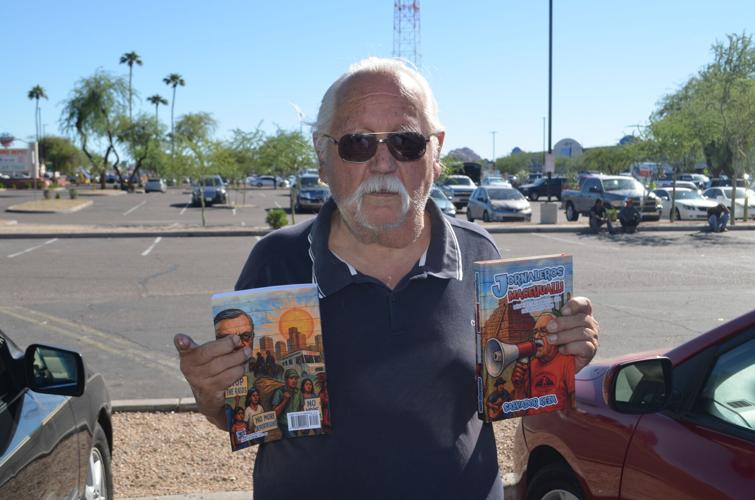










(0) comments
Welcome to the discussion.
Log In
Keep it Clean. Please avoid obscene, vulgar, lewd, racist or sexually-oriented language.
PLEASE TURN OFF YOUR CAPS LOCK.
Don't Threaten. Threats of harming another person will not be tolerated.
Be Truthful. Don't knowingly lie about anyone or anything.
Be Nice. No racism, sexism or any sort of -ism that is degrading to another person.
Be Proactive. Use the 'Report' link on each comment to let us know of abusive posts.
Share with Us. We'd love to hear eyewitness accounts, the history behind an article.